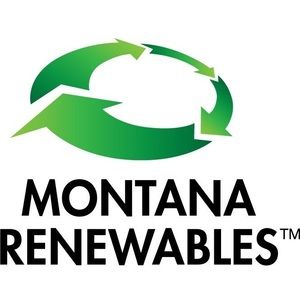Calumet: Montana Renewables ramps up production in Q1

April 22, 2024
BY Erin Voegele
Calumet Specialty Products Partners L.P. on April 16 released a first quarter operational update, reporting that its Montana Renewables biorefinery operated well throughout the three-month period, with production volumes sequentially improved each month.
The company in February 2021 first announced plans to produce renewable fuels at its existing refinery in Great Falls, Montana, by reconfiguring its oversized hydrocracker to process up to 15,000 barrels per day of renewable feedstocks, producing renewable diesel and sustainable aviation fuel (SAF). The facility began producing on-spec renewable diesel in 2022, with plant capacity at 6,000 barrels per day. The Montana Renewables facility commissioned renewable hydrogen, SAF and feedstock pretreatment systems in early 2023, boosting capacity to 12,000 barrels per day.
Advertisement
Advertisement
Operations at the Montana Renewables facility were impacted last year by a crack found in the steam drum of the facility’s hydrogen plant. A replacement drum was installed in November 2023 and the facility resumed normal operations the following month.
In its April 16 statement, Calumet said first quarter results for the Montana Renewables business are expected to reflect the significant burden of higher priced feedstock purchased prior to the summer 2023 slowdown related to the steam drum issue. Entering the second quarter of 2024, that old, expensive feedstock has been processed, the company explained.
"A year after commissioning began, our Montana Renewables business is now consistently processing approximately 12,000 barrels per day of renewable feedstock, including over 10,000 barrels per day of feed from our next generation feed pretreater," said Todd Borgmann, CEO of Calumet. "With these key operational milestones now reached, stable operations have allowed us to process an overhang of old expensive feedstock inventory. Given this progress, we are optimistic that we will achieve representative financial performance at Montana Renewables going forward, clearly demonstrating the strong competitive position of the business. Our advantaged feed and technology positions are complemented by agile product marketing and our position as the largest producer of sustainable aviation fuel in the Western Hemisphere, with current production levels running at a 30 million gallon per year pace. Significant further expansion of SAF production remains a strategic priority, and we remain encouraged by the well-advanced DOE loan program discussions.”
Advertisement
Advertisement
Montana Renewables’ current SAF capacity is in the range of 2,000 to 4,000 barrels per day, but Calumet is considering a move to what its calls MaxSAF, which would boost total capacity to 18,000 barrels per day of renewables, including 15,000 barrels per day of SAF. The company is expected to provide an update on its proposed MaxSAF expansion during its first quarter earnings call, which has not yet been scheduled.
Related Stories
The U.S. Energy Information Administration maintained its forecast for 2025 and 2026 biodiesel, renewable diesel and sustainable aviation fuel (SAF) production in its latest Short-Term Energy Outlook, released July 8.
XCF Global Inc. on July 10 shared its strategic plan to invest close to $1 billion in developing a network of SAF production facilities, expanding its U.S. footprint, and advancing its international growth strategy.
U.S. fuel ethanol capacity fell slightly in April, while biodiesel and renewable diesel capacity held steady, according to data released by the U.S. EIA on June 30. Feedstock consumption was down when compared to the previous month.
XCF Global Inc. on July 8 provided a production update on its flagship New Rise Reno facility, underscoring that the plant has successfully produced SAF, renewable diesel, and renewable naphtha during its initial ramp-up.
The USDA’s Risk Management Agency is implementing multiple changes to the Camelina pilot insurance program for the 2026 and succeeding crop years. The changes will expand coverage options and provide greater flexibility for producers.
Upcoming Events










